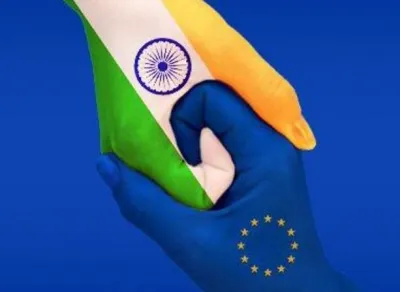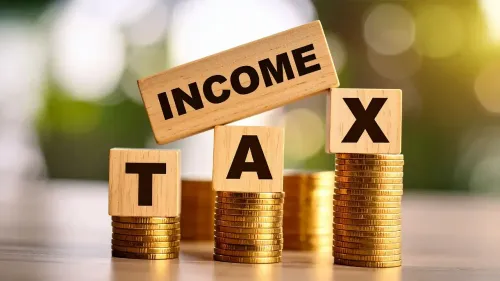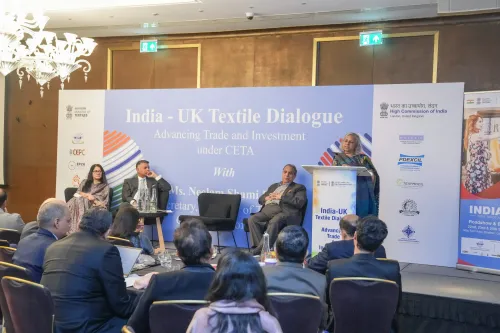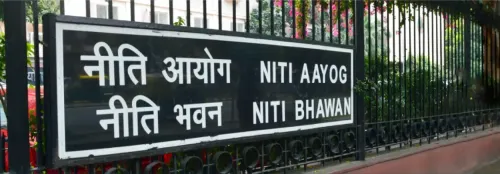What Role Will India Play in the EU's New Strategic Agenda?

Synopsis
Key Takeaways
- Technological sovereignty is prioritized in the EU-India partnership.
- Economic diversification is crucial for resilience post-pandemic.
- The Indo-Pacific engagement is now central to strategic discussions.
- Collaboration on defence and security is set to strengthen ties.
- The ambitious timeline for an FTA tests political will.
New Delhi, Sep 23 (NationPress) The New Strategic EU-India Agenda, unveiled by the EU on September 17, emphasizes enhanced priorities in trade, investment, technology, and defence, set against the backdrop of significant geopolitical shifts following Donald Trump's ascension to the US Presidency this year.
This new Strategic Agenda acknowledges the current geopolitical landscape and focuses on three main imperatives: technological sovereignty, economic diversification, and Indo-Pacific engagement. Each of these areas responds to historical lessons and modern demands, as highlighted in an article by India Narrative.
Firstly, the Agenda emphasizes technological sovereignty, a concept that has become increasingly central to the EU’s strategic considerations. It points out critical fields such as semiconductors, artificial intelligence, quantum computing, and defence technology where collaboration between the EU and India is essential.
The submarine deal under Project 75(I) exemplifies this collaborative approach, showcasing a partnership that transcends a mere arms sale to focus on technology transfer, co-production, and capacity building. Germany, a key EU member, is eager to engage in India's naval modernization, which reflects a broader EU perspective that partnering with India is vital for achieving technology independence. For India, this collaboration is crucial as it transitions from being a consumer of Western technology to a co-creator, further solidifying its position as a global innovation hub.
Secondly, economic diversification is a pivotal element in the New Strategic Agenda. The challenges posed by the pandemic and geopolitical tensions have taught the EU a crucial lesson about the risks of being overly dependent on limited supply chains. The new strategy recognizes that India’s extensive scale and burgeoning manufacturing capabilities make it an essential ally for the EU's economic resilience.
Moreover, the commitment to expedite negotiations on a Free Trade Agreement (FTA) and investment protection indicates that the EU-India partnership is ready to evolve beyond preliminary discussions to more concrete economic frameworks. This presents an opportunity for Indian industries to integrate more deeply into European value chains, offering not just cost-effective solutions but also high-quality, rule-based partnerships across various sectors including green hydrogen and pharmaceuticals.
Thirdly, and perhaps most importantly, is the engagement in the Indo-Pacific. The earlier endorsement of the Roadmap to 2025 by the EU and India included aspects of maritime security and emphasized 'freedom, openness, and an inclusive approach in the maritime domain.' However, in today's turbulent climate, the Indo-Pacific has become a focal point in the strategic dialogue between Brussels and New Delhi.
The New Agenda sets the groundwork for an EU-India Security and Defence Partnership, encompassing maritime security, cyber defence, counterterrorism, and defense production collaboration. Additionally, the EU's support for the India-Middle East-Europe Economic Corridor and the Global Gateway Initiative links economic connectivity with geostrategic stability. By indicating its willingness to partner with India on regional security, the EU positions itself as a significant player in the Indo-Pacific, while India gains valuable allies in shaping the regional order's future.
Historically, the EU-India strategic partnership has faced challenges where institutional enthusiasm meets bureaucratic hurdles. Issues like visa and mobility barriers, export-control regulations, and differences in foreign policy could hinder current momentum. The ambitious target of finalizing the FTA by the end of 2025 will test the political resolve on both fronts.
However, the current landscape presents higher stakes and sharper priorities for both Brussels and New Delhi. Ultimately, the true test lies not in ceremonial signings in Brussels or New Delhi but in whether this agenda yields meaningful results.









